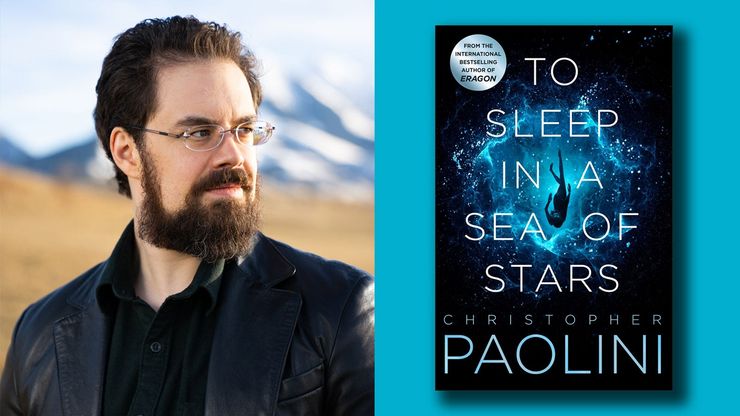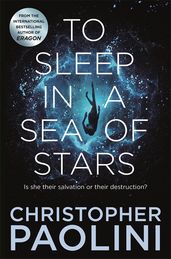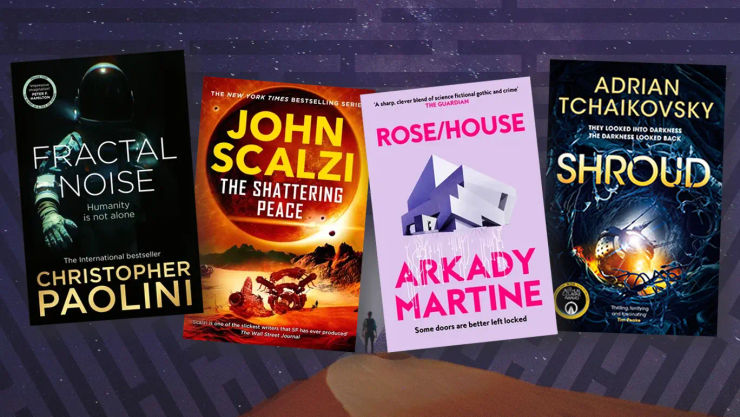Christopher Paolini on first contact with aliens
Eragon author Christopher Paolini has long pondered the future of humans out in the universe. Here he tells us how he thinks first contact with intelligent aliens would go down, and discusses his new sci-fi book To Sleep in a Sea of Stars.

Christopher Paolini’s epic science fiction novel To Sleep in a Sea of Stars sees xenobiologist Kira Navárez make first contact with intelligent alien life during a routine survey mission on an uncolonised planet. What follows is nothing like she imagined . . . We asked Christopher what inspired him to write about first contact and what he thinks might happen if we discovered intelligent aliens – or they discovered us . . .
Looking for more epic sci-fi reads? Discover the best science fiction books.
First contact with intelligent aliens. An evergreen topic for science fiction. Nor is it one confined to fiction. Anyone who thinks seriously about the future has to grapple with the possibility that humans are not alone in the universe.
That we aren’t seems mathematically certain. There are billions upon billions of planets in the Milky Way and billions upon billions of galaxies beyond. However rare life may be, the universe is large enough that rare events become almost guaranteed.
Which raises the question: where is everyone? The stars ought to be teeming with aliens. With enough time and energy, it becomes trivial for a species to spread among the stars, even at sub-light speeds.
Perhaps we are the first technologically advanced civilization to form (or near enough). Or perhaps there’s some fact of nature or some malevolent force that culls any species that advances beyond a certain point. This is what is known as the Great Filter theory.
If we ever do discover self-aware aliens, the discovery will rank as one of the most profound turning points in our history. To know that we aren’t alone in the vastness of existence would be a great thing. And of course, such a discovery might bring with it a host of existential threats.
While a scenario like Independence Day will remain firmly in the realm of fiction, there’s nothing to stop a group of hostile aliens from lobbing a big, heavy rock at Earth at a decent chunk of lightspeed. Nor, if one wants to really speculate, from using the output of an entire star to drive an interstellar laser capable of frying an entire planet, or any number of other fantastical possibilities. Unlikely, but again, in a universe this large, rare events become almost guaranteed.
But, some have argued, any species that has advanced to such a level must have tamed its wilder impulses. Surely they wouldn’t be as violent as humans.
To which I say, “unlikely.” In order to survive long enough to build a technological civilization, a species would both have to eat and avoid getting eaten. This is no small thing, and was the primary focus of a great number of our ancestors. To that end, any intelligent creature will seek to master their environment, which – by definition – will involve the use of force to nullify potential threats. By the time a species reaches the point where it can spread to another planet, it will have established itself as the most dangerous animal on its homeworld.
It’s true that intraspecies conflict may decrease with technological progress. We humans, after all, have been domesticating ourselves over the past few thousand years. Cooperation is one of our great strengths. However, although physical aggression may decrease on an individual basis when basic needs are met, societies as a whole will retain the capacity for great violence against any they perceive as the outsider. They must, in order to ensure the survival of their kind. One need only look at ants to see an example of this in nature.
All of which is to say, if we encounter intelligent aliens, I have no great hope they would be any wiser, calmer, or more peaceful than we are. Rather, I would expect them to be relentless in exploiting every possible advantage for themselves, as we see with every other living creature. That doesn’t preclude altruism, but as an average of behaviour, one rarely goes wrong by taking the cynical view.
For all of these reasons and more, I wanted to write about first contact in my newest book, To Sleep in a Sea of Stars. The dramatic possibilities were enormous. How would humans react? How would the aliens react? What sort of misunderstandings might occur between two radically different species?
Writing almost a thousand pages on the topic did cause me to reevaluate my assumptions somewhat. On one hand, the experience strengthened my initial scepticism that we could peacefully coexist with another intelligent species. On the other, it left me very much hoping that we can. The universe is, for the most part, cold, empty and dead. Life, in every form, is precious, and if we ever manage to make contact with another self-aware species I would count it an amazing thing. If I had my way, they and we would come to see ourselves as part of a shared team, pitted against the indifferent inevitability of entropy.
The universe is enormous beyond comprehension. Despite the risks of making contact with aliens, it would be nice to have others to share existence with.
Failing that, our goal as a species must be to spread throughout the Milky Way and bring life where no life now exists. Because after all, there’s still a chance that we ourselves are the Old Ones, first born and first come.
Something to think about when looking at the stars.
Here's everything you need to know about To Sleep in a Sea of Stars:
To Sleep in a Sea of Stars
by Christopher Paolini
To Sleep in a Sea of Stars follows xenobiologist Kira Navárez as she discovers an alien relic that thrusts her into the wonders and nightmares of first contact. Epic space battles for the fate of humanity ensue, taking Kira to the farthest reaches of the galaxy and, in the process, transforming not only her, but the entire course of history.



